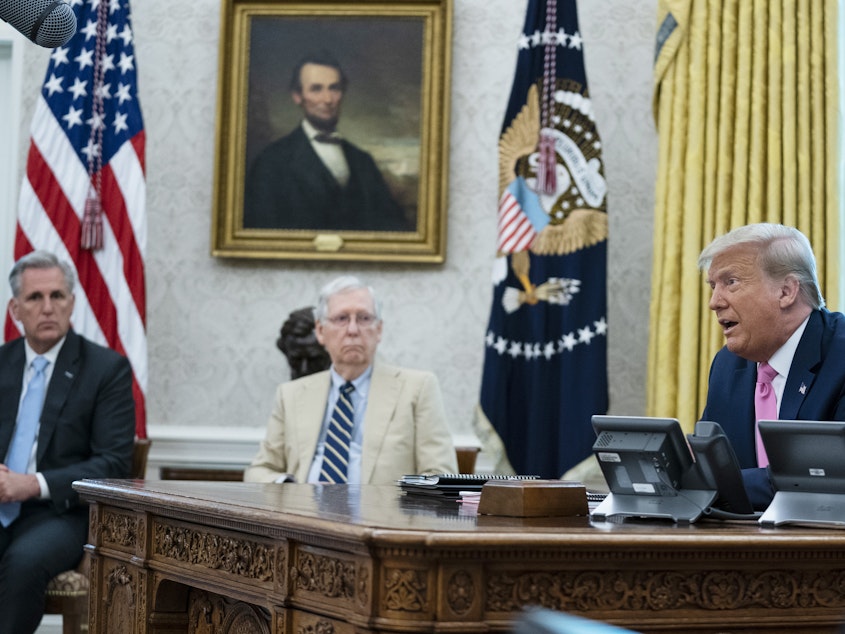As Talks Open On New Coronavirus Aid Bill, Trump To Return To Daily Briefings

President Trump met with Republican congressional leaders Sen. Mitch McConnell and Rep. Kevin McCarthy on Monday to discuss the next round of coronavirus relief funding, saying he hoped the next package would help small businesses.
Trump also said he would revive his daily 5 p.m. coronavirus briefings, likely starting Tuesday, noting the need to get out information with the surge in cases. "We have had this big flare-up in Florida, Texas, a couple of other places," he said.
Treasury Secretary Steven Mnuchin said the priorities for the next round of coronavirus aid would be "kids and jobs," starting with a trillion-dollar offer. Mnuchin said he would brief Republicans on Capitol Hill on Tuesday and would reach out to Democrats to begin talks.
House Democrats approved a much larger aid package to the tune of $3 trillion more than two months ago, but it was never taken up in the Senate.
Mnuchin, who served as the administration's top negotiator for the previous coronavirus legislation, said they want to finish a bill by the end of the month before enhanced unemployment insurance expires, but said Republicans are seeking a "technical fix" so that workers don't make more in unemployment benefits than they would otherwise make on the job.
Sponsored
Among the administration's other priorities, Mnuchin said, were tax credits to encourage businesses to bring people back to work and to buy protective equipment, in addition to money for schools that can open safely — as well as liability protection for schools and businesses.
When asked the importance in negotiations of a proposed payroll tax cut that's long been pushed by the president, Trump said "we're working on it" but also made clear it was "one of many elements" under discussion.
Trump cited TV ratings as a reason to resume the daily briefings. "I was doing them and we had a lot of people watching, record numbers watching in the history of cable television, and there's never been anything like it."
Trump said he would like to invite companies working on vaccines and therapeutics for the virus to provide updates on their progress via the daily briefings. "I think it's a great way to get information out to the public," he said.
White House counselor Kellyanne Conway told reporters last week that she hoped the daily briefings would resume, saying that they gave the president a boost in the polls. "His approval rating on the pandemic was higher when he was at the podium," Conway said.
Sponsored
Recent polls have put the president's overall approval numbers in the low 40s, and he is widely seen as doing a poor job in leading the nation's coronavirus response. It was during one briefing in late April that Trump suggested people ingest disinfectants as a way of preventing COVID-19, advice that was quickly disavowed by health experts. The daily briefings ended soon after. [Copyright 2020 NPR]



